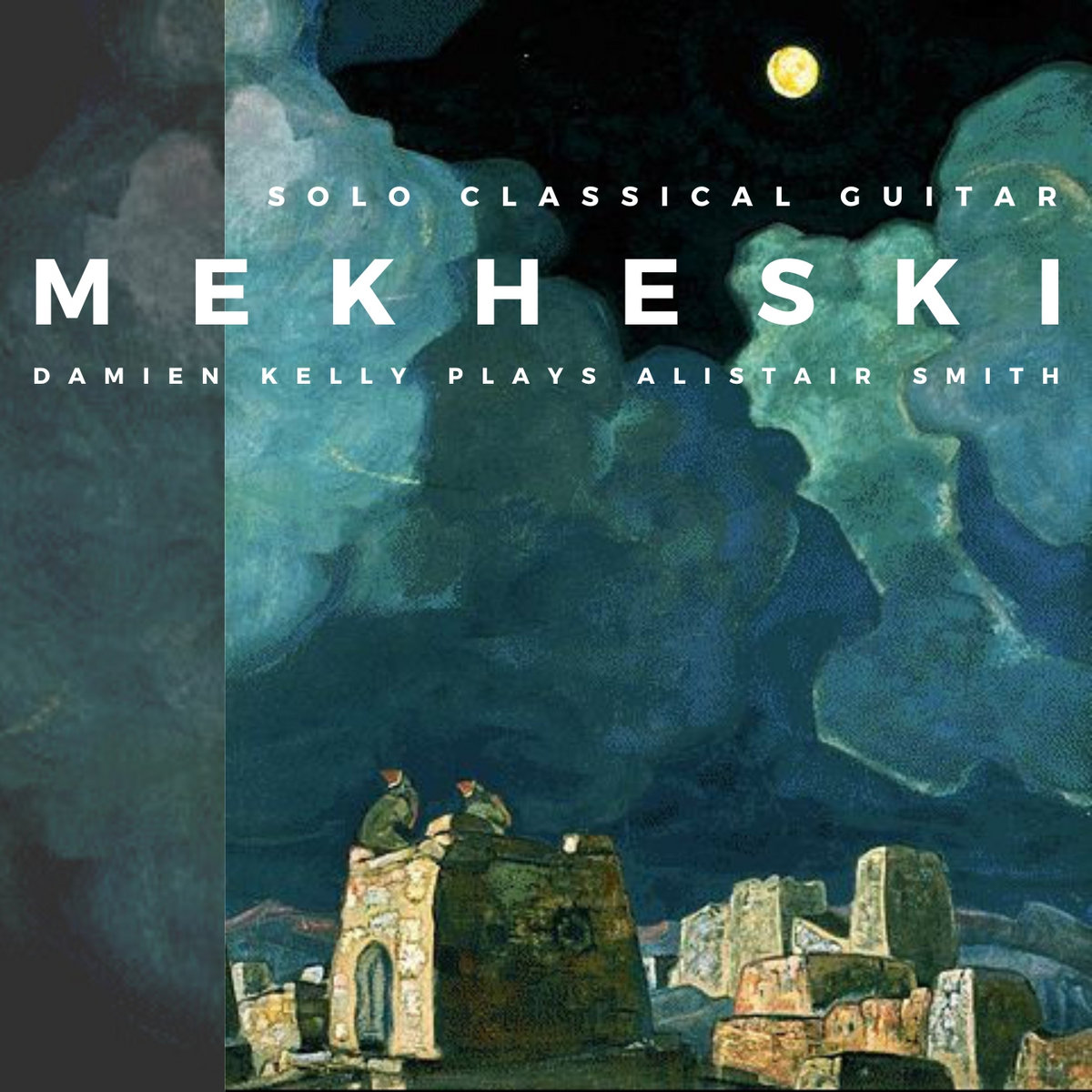Muse over the spiritual in modern times with “Mekheski”

Image courtesy of artist
What better way to begin a new year than with thoughtful contemplation and exploration of new possibilities? And what better music with which to embrace such intention than that of composer Alistair Smith, as played by guitarist Damien Kelly? These two musicians, initially separated by distance, connected with one another thanks to the happenstance fortune of the internet. The result is a modest but mindful EP titled Mekheski (independent, 2023).

Composer Alistair Smith | Image courtesy of artist
Smith, who came across Kelly performing one of his pieces in a YouTube video, felt the Irish guitarist was the right person to convey the Smith’s intentions and emotions. The two collaborated during the height of the pandemic, with the EP being a bi-continental affair: written in London and recorded in New York City. Finding inspiration in the art of Nicholas Roerich, the writings of Isabelle Eberhardt, Smith’s pieces channel the cultural and historical richness of Roerich and Eberhardt’s lives which, combined, touch on Russia, Tibet, China, India, North Africa, Algeria, France, Swizerland, and the U.S. Though the two lived very distinct lives, in their own ways, Roerich and Eberhardt each examined and challenged the public understandings, conventions, and expectations of spirituality, religion, and art in everyday life. This was particularly true for For Eberhardt, who bucks social norms by moving to Algeria, converting to Islam, and often dressing as a man.
Though the record is brief, Smith and Kelly, like Roerich and Eberhardt before them, create intriguing overlap in what each bring to the EP, despite their distinct and separate contributions and composer and performer. The music of Mekheski feels surprisingly vast and pleasantly seamless in the listening experience it offers, enhancing the sense of unified cohesion. Put the record on and leave it to unfold and the changes between each of the four tracks is so subtle that the recording feels like one ever-evolving journey, rather than four individual chapters.
That’s not to say the music lacks structure or unique phrasing to give each piece a sense of clear identity. The title track introduces the EP with a brief minor arpeggiating chord, followed by a slow somberness. Kelly plucks each note with careful and delicate consideration, forming the mildly despondent but low intensity melody that alternates between brief bursts of cyclical phrases and deliberate pauses and moments to allow chords to decay. This opening piece contrasts with the lower octave based melody of “Fantasia of the Far Off Blue,” which sets a notably more dramatic tone thanks to its reliance on lower pitch to propel another minor key motif. Commonalities like the use of repetition in phrases and cyclical writing bonds the pieces together, making them feel slightly more thematic a part of one another, without being exact carbon copies and becoming melodic callbacks, which might otherwise ruin the organic flow of the record as a whole. For this one recurring melodic approach, it does feel like a subtle nod to Roerich’s fascination with hypnotism and his attempt to express such through his paintings (one of which, Mekheski – Moon People (1915), Smith uses for the EP cover). The soft but vivid nature of Roerich’s artistry speaks to the way hypnosis can create vivid sensations, mentalities, and awareness of things in one’s mind, while also being a calming, delicate, and generally “soft” experience.
Musically Smith’s embrace of minor keys, minor chords, augmented and diminished intervals, and fluid playing direction also taps into a musical aesthetic more closely resonating with eastern European and South Asian tonality and musicality. This in turn nods to the many nations and accompanying cultures that were a part of Roerich and Eberhardt’s lives. Smith has cleverly folded in many elements of the individuals that inspired him to write the music of this EP and his ability to do so while limiting his compositions to just that of a classical guitar, speaks to how multifaceted and thoughtful of a composer he is. Kelly’s poised and equally thoughtful performance of course, adds the audible beauty of these ideas. The retention of small sonic character like the metallic whir of finger slides heard in “Sleeping Warrior” and the small breaths and fabric shuffling against the guitar heard in final track “Escadas Para Villa,” serve as reminders of the humanity imbued into this record, as well as reminding listeners of the beauty found in the open, negative space between notes – those moments when reflection and wonder occur. Given from whom Smith drew his inspiration for Mekheski and degree to which both individuals considered the intangible aspects of thinking, feeling, spirituality, and one’s very own mind, it seems entirely deliberate and fitting that Smith leave some room for thoughts other than his own to dance and blend with what he’s conceived and what Kelly has brought to life through his elegant performance.
Mekheski will be released on January 11, 2023.
Order it on Bandcamp.
Keep connected with Alistair Smith through his official website and these social media outlets:
Bandcamp
Spotify

Leave a Reply